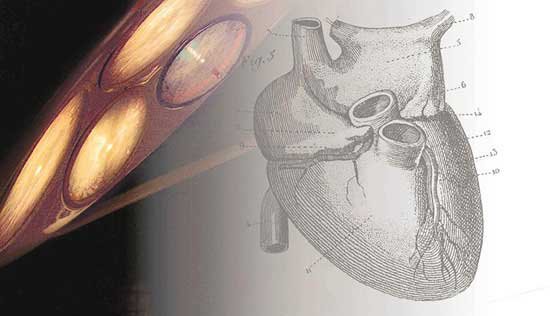Rare lung-liver transplant depended on generosity
July 24, 2007
Article Tools
E-mail
Print
Single page view
Reprints
Reader feedback
text size:
''A single donor has the potential
to save and improve up to 50 lives and take as many as eight people off transplant waiting lists.''On July 20, 2005 I started over with a new life. It was the day I received a transplant of my liver and both lungs. If it weren't for a generous, altruistic organ donor, it would never have been possible. It is an extraordinary story of a unique disease and challenging journey. There have only been about a dozen or so lung-liver transplants in the United States, and fewer than 75 worldwide.It all started in the early 1990s. I began noticing that I was having some trouble breathing when doing tasks that required only a moderate amount of exertion. By 1997, I could barely climb a flight of stairs without getting completely winded. My doctor immediately ran a few tests and determined that I had a rare condition called Alpha-1 Antitrypsin Deficiency.If one has a deficiency of this Alpha-1 protein, lung damage often occurs. It is an inherited, genetic disease. Typically it affects only the lungs, causing an early onset and rapid progression of emphysema in people who inherit two of the damaged genes. In more rare cases, such as mine, the liver can also be affected by cirrhosis. Cirrhosis is a common cause of a dangerous type of liver cancer called hepatocellular carcinoma, or HCC. A few years after I was diagnosed with emphysema, it was discovered that I had cirrhosis and it had caused cancer in my liver.Early in 2004, I was referred to the Transplant Center at the Hospital of the University of Pennsylvania. Specialists there said my only hope for survival was a liver transplant. But because of my advanced lung disease, I could not tolerate the surgery. They said I would need a lung transplant simultaneous with a liver transplant. The Hospital of the University of Pennsylvania had only done two such transplants in the past. Most transplant centers in the United States have never done any. But, they were optimistic that I would have a very successful outcome, and I underwent several days of exhaustive testing to be evaluated for the combination lung-liver transplant surgery. In June 2004 I was placed on the waiting list for the transplant.On the evening of July 19, 2005 I received a phone call from the hospital in Philadelphia. One of the transplant coordinators was calling to say they had what appeared to be suitable lungs and a liver for my transplant. I went to Philadelphia and arrived at the hospital at around 8 p.m. As soon as word was received that the organs were satisfactory, I was rushed to the operating room and the surgery was under way.Less than a month later, I was released from the hospital. I began an intensive three-month rehabilitation program that included physical therapy and pulmonary conditioning. A few months later, in January of 2006, I went back to work full-time as an electrical product engineer. Because of the incredible caring expertise of the doctors and nurses at the University of Pennsylvania, at age 50 I have been able to return to very normal lifestyle. There is no sign of the liver cancer returning, and my lung function is now completely normal.If not for the extraordinary, selfless act of the person who decided to be an organ donor, this truly amazing transplant surgery might never have happened, and I would not be alive to write this today.According to the Gift of Life Donor Program, an average of 17 people in the United States die every day waiting for organ transplants. Nationwide, there are more than 100,000 men, women, and children needing heart, kidney, liver, lung and pancreas transplants. There are more than 5,000 waiting just in the eastern Pennsylvania, New Jersey, and Delaware area. A single donor has the potential to save and improve up to 50 lives and take as many as eight people off transplant waiting lists.All major religions support organ and tissue donation. Most faiths consider organ donation a personal decision and the ultimate gift of generosity and compassion. I hope sharing my experience will inspire everyone to make the decision to commit to donation. There are many simple ways to accomplish this.Indicate your wishes when you renew your driver's license. You also can sign up on-line at http://www.donatelife pa.org. And, discuss your decision with your family. One of the most important things you can do is to tell your family of your decision to give the gift of life.Richard R. Fallstich lives in Fountain Hill.RICHARD R. FALLSTICH
More articles

No comments:
Post a Comment